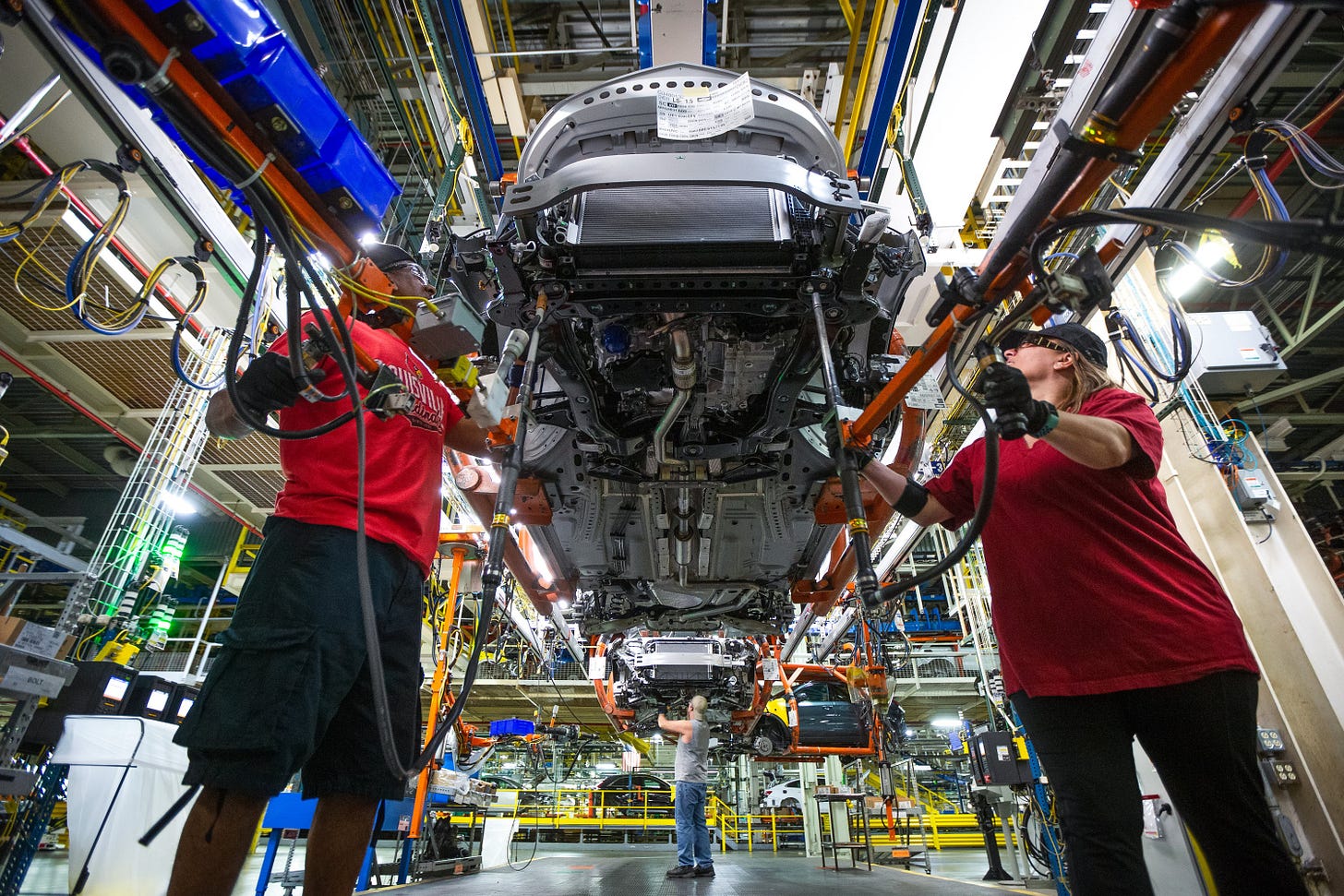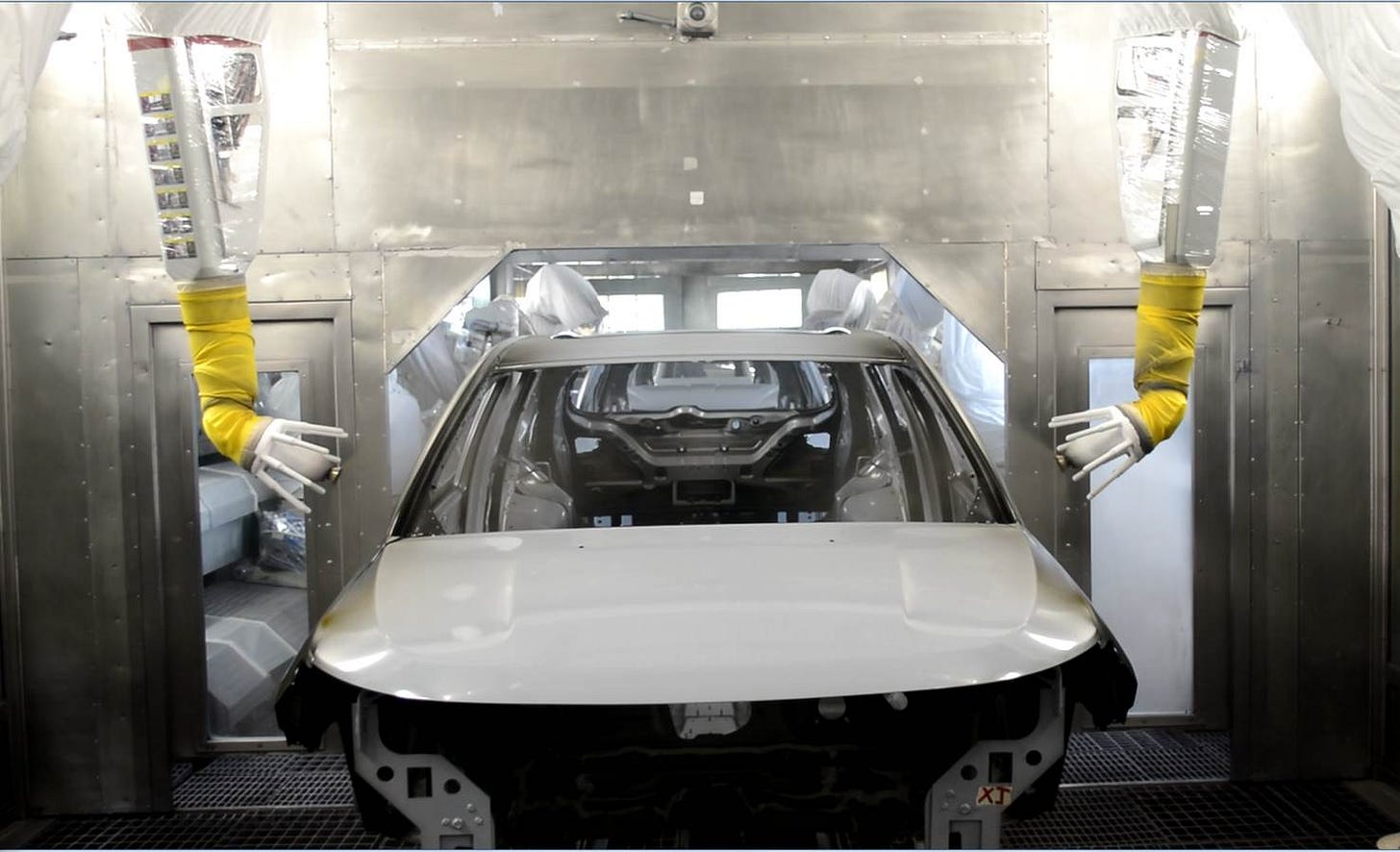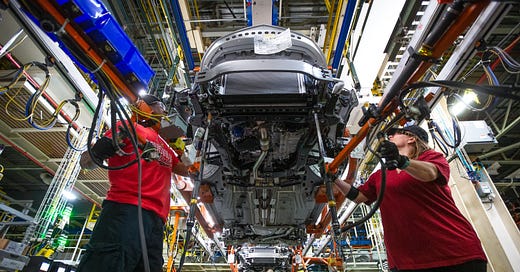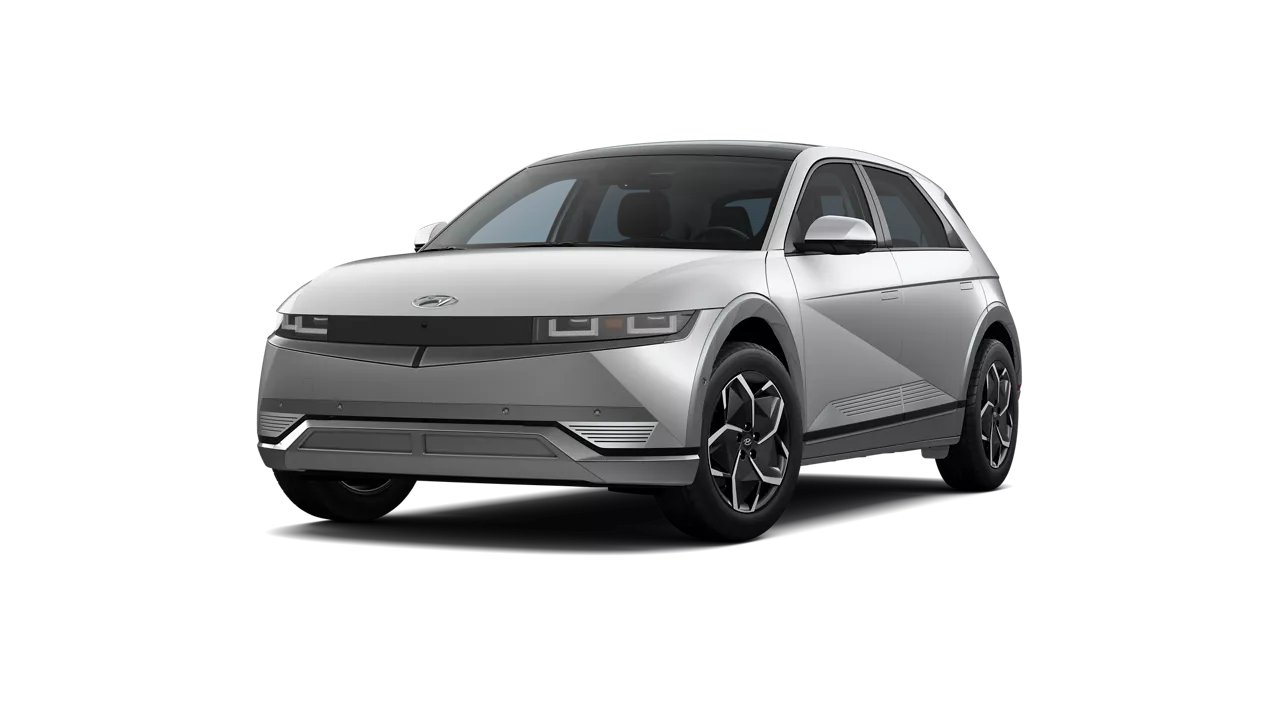Auto industry paralyzed by uncertainty
Wall Street likes deregulation, organized labor changes
The key issue facing the U.S. auto industry now is uncertainty.
In these early days after the presidential election, industry analysts and auto executives say they watch and wait with hope and concern.
Combing through what has been written and discussed nationally and globally, there’s a lot angst or “pearl clutching.”
Note: A longtime analyst who has provided thoughtful insight on the auto industry declined to comment for this story because, he said, his employer has implemented a new corporate policy that employees are prohibited from discussing Donald Trump or his impact on the auto industry. Violating the policy risks dismissal.
Jon Gabrielsen, a market economist who retired from advising vendors and automakers including the Detroit Three, said, “A company can develop an approach to deal with almost any known government action. What can paralyze any company is dealing with the unknown and unknowable government action that is dangling out there as possible or probable but not yet decided.”
No one knows exactly what Trump will do after he’s inaugurated on January 20, which falls on the Martin Luther King Jr. holiday next year, but he has made promises cut corporate taxes and de-regulate that have juiced the stock market as while at the same time triggering some anxiety among automakers.
“If they mismanage the economy and everything goes to hell, no matter what their policies are, that’s not a good thing for us. As long as the economy stays strong, we’ll be OK,” an auto executive told me on condition of his name not be used. “If the economy does well, we’ll do well.”
Industry insiders say they’re mostly concerned that a dramatic pivot to tariffs that would drive up costs of parts and products and potentially have a dramatic impact on the economy. Cutting incentives electric vehicles would slow adoption.
Analysts: Don’t screw up the strong economy
Wall Street views the current economic landscape as strong, a fact that Kamala Harris failed to convey during her campaign to succeed President Joe Biden.
“Every incumbent presidential candidate is dealt a set of conditions they have to defend, and also has to make sure they’ve got the best people defending them,” wrote Michael Cembalest, chairman of market and investment strategy for J.P. Morgan Asset & Wealth Management, in his investor note this week.
“You play the hand you’re dealt, and you play it aggressively since politics is a full contact sport,” he wrote.
What’s “notable as an investments person” about the 2024 election outcome, Cembalest wrote, is how Kamala Harris and her team failed to convey objective and significant Biden Administration accomplishments:
“Close to an all-time high in the labor force participation rate, a proxy for a very strong labor market”
“A surge in reshoring activity of US manufacturing jobs after reshoring progress declined under Trump”
“An industrial policy that overwhelmingly benefits GOP districts: ~75% of energy bill spending is going to GOP districts, many of which are located in swing states”
“The largest surge in manufacturing-related construction spending on record, which appears directly tied to passage and implementation of the CHIPS bill; key locations include Arizona, Ohio and New Mexico”
“Highest year-to-date equity gains in an election year since 1936, contributing to the highest solvency measures in over two decades for US corporate defined benefit plans”
“The inflation surge was painful but has subsided; wages are rising faster than rising rents.”
When it comes to whether tax cuts would offset the impact of tariffs, most economists “are not positive” on the idea,” Cembalest wrote.
“Environmental lunatics” no longer at the table
Trump has argued that a shift to electric vehicles is a “hit job” on Detroit and dismissed supporters of the transition away from gasoline-powered vehicles as “environmental lunatics.” He has said he opposes consumer rebates for electric cars.
Yet a top Trump adviser and campaign funder was Elon Musk, CEO of Tesla. It has been an industry leader as an all-electric carmaker. The Detroit Three and others are chasing his market share and market valuation of $929 billion 48 hours after Election Day.
Tesla stock spiked significantly on Election Day and hasn't tapered.
“Auto companies spend thousands and thousands of dollars in lobbying efforts to get a single sentence written or deleted from legislation, and now we have a guy at the table,” an auto executive told me. “But he sells only electric cars and he’s a competitor, so this is a unique situation and uncharted territory.”

Fact is, Trump has put forth no specific policy proposals.
So analysts and auto executives say they’ll watch and wait as they decide next steps for billions of dollars in new manufacturing investment in Michigan, Kentucky, Tennessee and throughout the U.S.
“We’ve recovered” post-COVID: Now what?
“If things go as promised, it could be a tough time for the Detroit Three’s investments in their electric car transition,” said Sam Fiorani, vice president of global vehicle forecasting for AutoForecast Solutions of Chester Springs, Pennsylvania.
“If any of the promises made come through, there will be a lower demand for EVs and manufacturers will have excess capacity sitting around and not making them any money,” he said. “Tariffs on every import boosts the price of every vehicle and could throw the whole industry into trouble … The potential fallout is great and could increase the price of vehicles, raise the burden to buyers and decrease the long-term competitiveness of the domestic auto industry.”
Fiorani noted: “The economy currently is going well. Everybody is looking at the recovery from COVID that boosted the price of everything. The recovery since then has been spectacular and we’ve recovered. Disrupting that has unknown consequence and could potentially be bad — based on where the economy is at the moment.”
Infrastructure support for electric vehicles is unlikely to go away because millions of electric vehicles are on the road, but speedy expansion of charging stations may be an unsafe bet, he said.
Tesla vs. competitors trying to catch up
Tesla has spent so many years building loyalty that incentives aren’t as essential, he said.
In March 2024, Hyundai said it was spending $12.6 billion to ramp up EV and battery production. Under current policy, half of new vehicles sold by 2030 must be electric or plug-in hybrids.
“The public, itself, wants gasoline-powered cars. You have to let the public decide,” said Charles Elson, founding director of the Weinberg Center for Corporate Governance at the University of Delaware. “At some point, maybe they will go electric, but using the government itself as a tool to force change distorts the market.”
Trump has challenged concerns about climate change and its economic impact. He indicated during the campaign he planned to cut green energy investments and slash government regulation of the auto industry.
Expect strict mileage regulations to be relaxed, Elson said.
Auto industry leaders said they expect Trump to fight California on climate initiatives.
Buyer rebates for EVs? Not likely
Every analyst agrees that change is certain but few can define what it looks like.
The $7,500 incentives are likely going away, along with government subsidies for battery plants stateside “even though they’re directly funding jobs and most of the battery plants are in red states,” said John McElroy, longtime industry analyst and host of “Autoline After Hours” webcast and podcast.
“The whole EV thing looks like it could come undone,” he said. “And now there’s talk of putting heavier tariffs on cars coming in from Mexico. That’s going to hit everybody. Mexico is a huge source of cars for the American market, including domestic automakers. All of 2025 will be about negotiations” — the United States-Mexico-Canada Agreement (USMCA) gets revisited in 2026.
General Motors has left its electric vehicle factory in Orion Township, Michigan sitting empty for a year, and Ford cancelled its plan for a three-row electric SUV to focusing on its successful hybrid lineup.
“There is a very pronounced anti-EV sentiment in the country right now,” McElroy said, and Trump made it clear he’s going to put a stop to federal government’s push toward electrification. “We'll have to see how far it goes. This makes the job all the more difficult for the automakers and suppliers.”
Building in Mexico? Think again
While the Detroit Three and others watch to see how policies unfold, Stellantis CEO Carlos Tavares is preparing to launch Jeep and Ram and Dodge electric vehicles.
“Likely all the subsidies will be gone,” McElroy said.
And if even domestic automakers can’t build in Mexico and ship back to the U.S. without getting hammered with tariffs, prices will go up and sales will slow dramatically, he said.
All Detroit Three automakers build in Mexico to cut overall costs, including the Ram Truck, Ford Maverick and Chevy Silverado.

Supply chains face renewed risk if the bipartisan CHIPS and Science Act of 2022 is killed, McElroy said. Semiconductor chips are essential for cell phones and computer but also automobiles, and building plants in the U.S. strengthens national security, he said. “The US only produces 10% of the CHIPS it uses. A great bulk come from southeast Asia and mainly Taiwan,” McElroy said.
“We congratulate President Trump”
After the 2020 election, a number of automakers vowed to halt financial support of lawmakers who refused to certify the presidential election results, including Toyota. Automakers including Ford and General Motors later reversed course.
Here’s what the Detroit Three automakers said in statements on Nov. 6, 2024:
Stellantis: "Stellantis congratulates former President Donald J. Trump on being elected the 47th President of the United States. We look forward to working with President-elect Trump and the new Congress on policies that support a strong and competitive manufacturing base in the U.S.”
GM: “We congratulate and look forward to working with the President-elect, Congress, and all elected officials to ensure that the U.S. continues to lead the world in technology and innovation, to the benefit of American workers and consumers alike.”
Ford: “We congratulate President-elect Trump and the newly elected officials across all levels of government. As America's number one automaker, with the most vehicles assembled, most vehicles exported, and most hourly autoworkers in the U.S., Ford continues to set the pace for American manufacturing and innovation. We remain steadfast in our strategy to provide customers choice of gas, electric and hybrid vehicles. We look forward to working with the new Administration and Congress on policies that strengthen the U.S. automotive industry, which supports 9.7 million American jobs and drives more than $1 trillion into the economy each year.”
Trump is a proud UAW critic
One major issue moving forward is the role of the UAW. President Joe Biden walked their picket line. His appointments to the National Labor Relations Board worked to restore workers’ rights to form unions and engage in collective bargaining.
Trump has been a vocal critic of the UAW while saying he supports workers. His appointments are expected to be company-friendly, as they were during his previous term.

The fact that UAW President Shawn Fain will no longer have an ally in the White House, as he does with President Biden, likely fuels the stock price for automakers, too, analysts said.
UAW President Shawn Fain UAW members around the country clocked in today under the same threat they faced yesterday: unchecked corporate greed destroying our lives, our families, and our communities … It's time for Washington, DC to put up or shut up, no matter the party, no matter the candidate. Will our government stand with the working class, or keep doing the bidding of the billionaires? That’s the question we face today. And that’s the question we’ll face tomorrow. The answer lies with us. No matter who’s in office.”
In the end, the auto executive who spoke to me said, the issue is not about partisan loyalties or even what the policies become — only that the auto industry needs to know as soon as possible.
“The problem is, we have had conversations about it, how do you weigh all this? It’s not like they have a clear policy proposal,” the auto executive said.
“People say the election might be bad for EVs, but Musk is in (Trump’s) hip pocket. So it might not be. And tariffs? Depends on what they are. Nobody really thinks tariffs work,” the auto executive said. “What you don’t know is how much they’re really going to change. That’s the big unknown. We’re not going to tear up our cycle plan. It would be premature. We don’t know Trump’s real priorities yet.”
As a former reporter at The Des Moines Register and lecturer at the annual Okoboji Writers Retreat in Iowa, Phoebe Wall Howard is part of the Iowa Writers Collaborative.






Outstanding reporting on the potential impacts of the upcoming Trump administration on the auto industry. I've seen nothing that even comes close to this level of detail. Thanks.
Terrific reporting. Thanks.